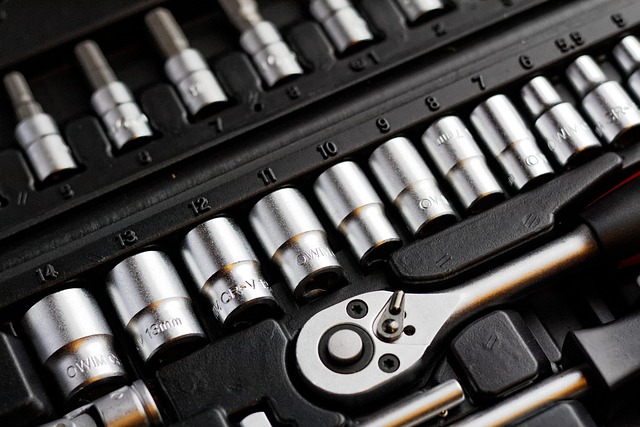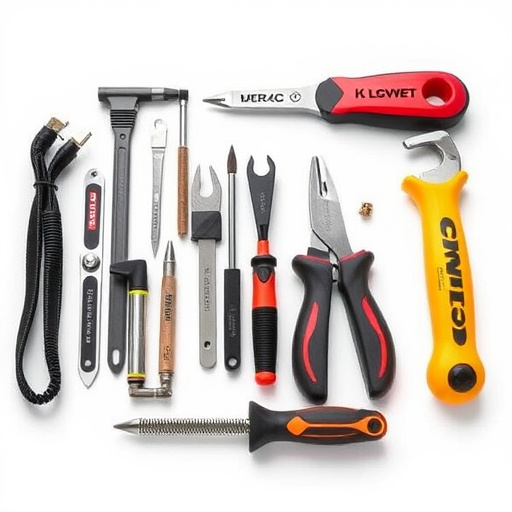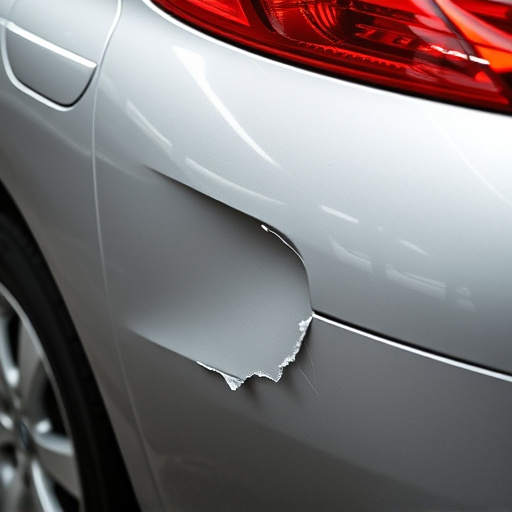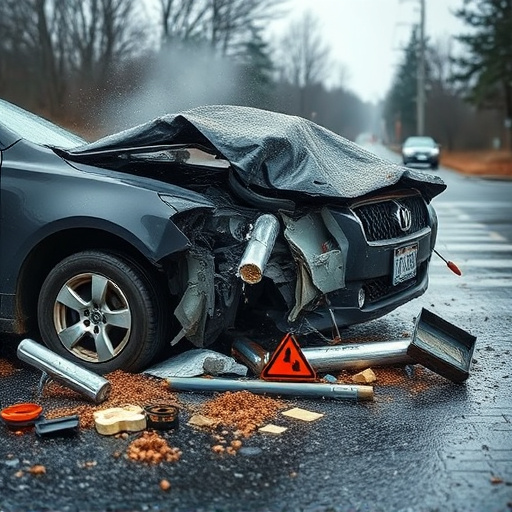Collision repair customer service is a key factor in managing warranty concerns for vehicles undergoing body work. Reputable car body shops leverage effective communication, transparent practices, and modern technology to ensure compliance with manufacturer standards and build client trust. The dedicated team guides customers through complex policies, clearly communicates covered repairs, and maintains detailed records. Regular staff training, digital systems for tracking warranties and repairs, and CRM software integration enhance service quality, minimize errors, and improve customer loyalty through reliable vehicle repair and superior car paint services.
Collision repair customer service plays a pivotal role in addressing warranty concerns, ensuring client satisfaction, and maintaining shop reputation. This article delves into the intricate relationship between collision repair and warranties, exploring key aspects such as understanding common warranty issues, the critical role of customer interaction in resolving these concerns, and best practices for effective warranty management within collision repair shops. By implementing strategic approaches to customer service, shops can enhance operational efficiency and foster long-term client relationships.
- Understanding Warranty Concerns in Collision Repair
- The Role of Customer Service in Addressing Warranties
- Best Practices for Effective Warranty Management in Collision Repair Shops
Understanding Warranty Concerns in Collision Repair

Collision repair customer service plays a pivotal role in addressing warranty concerns. When a vehicle undergoes collision repair at a car body shop or auto body services facility, it’s crucial to ensure that all repairs align with the manufacturer’s specifications and quality standards. Customers often have valid worries about whether their auto collision center will honor the original warranty after such repairs.
Effective communication between the customer, auto body shop employees, and warranty providers is essential in dispelling these concerns. Reputable car body shops should be transparent about the repair process, using modern technology and techniques to ensure that all work complies with industry standards. This transparency builds trust, assuring customers that their vehicles will remain under warranty even after collision repair services are rendered at an auto collision center.
The Role of Customer Service in Addressing Warranties

The role of collision repair customer service is paramount when it comes to addressing warranty concerns. It serves as a bridge between the customer and the manufacturer’s promises, ensuring that all repairs are covered according to the terms outlined in the vehicle’s warranty. Skilled customer service representatives at a reputable collision repair center possess in-depth knowledge about various makes and models, enabling them to navigate complex warranty policies effectively on behalf of the client.
They play a crucial role in guiding customers through the claims process, explaining what is covered and what might be considered an out-of-warranty repair. This transparent communication builds trust and ensures that clients are fully aware of their rights and responsibilities. Moreover, by maintaining meticulous records and staying updated on industry standards and best practices, collision repair customer service professionals ensure that every interaction with a client regarding warranties is handled professionally and efficiently, ultimately enhancing the overall auto maintenance experience.
Best Practices for Effective Warranty Management in Collision Repair Shops

Effective warranty management is a cornerstone of successful collision repair customer service. Best practices begin with clear and comprehensive policies that outline expectations for both customers and technicians. Transparent communication is key; ensure policies are easily accessible and explained in layman’s terms to dispel any confusion or misapprehensions. Regular training sessions on warranty procedures for staff can help maintain consistency and accuracy in handling claims, reducing potential delays or errors.
Implementing a robust digital system for tracking warranties and associated repairs streamlines the process. This allows for quick access to historical data, ensuring that every step of a claim is accurately documented and easily traceable. Moreover, integrating such systems with customer relationship management (CRM) software can provide insights into customer satisfaction trends, enabling collision repair shops to continuously refine their services, ultimately enhancing customer loyalty through reliable vehicle repair and superior car paint services.
Collision repair customer service plays a pivotal role in effectively addressing warranty concerns. By understanding the intricacies of warranty issues and implementing best practices, collision repair shops can ensure smooth operations and maintain customer satisfaction. Through proactive communication, thorough documentation, and knowledgeable staff, these shops can navigate complex warranty scenarios, providing peace of mind for customers and upholding the reputation of the industry as a whole. Collision repair customer service, thus, serves as a critical component in managing warranties, fostering trust, and delivering exceptional experiences.













